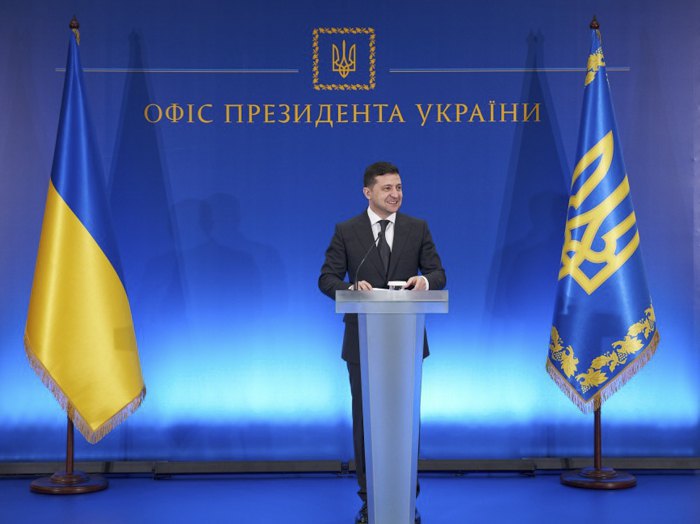Surkov vs Kozak
Significant changes have recently taken place in communications between Kyiv and Moscow.
As I said before, back in the middle of 2019, literally during their very first telephone conversation, Zelenskyy asked Putin a “favour”, which is to keep Viktor Medvedchuk away from these communications. Before the Ukrainian presidential election Medvedchuk, in fact, was the only channel of communication.
Putin did not mind. In fact, Zelenskyy asked for a “favour” amid another round of confrontation between the “Kremlin towers” on the “Ukraine case”, which ended with Vladislav Surkov being replaced by Dmitry Kozak. The formal dismissal followed the actual one: this week, Vladimir Putin dismissed Vladislav Surkov from the post of his assistant (he was reported to have tendered his resignation on 17 January), the ideologist of the Kremlin "party of the war", who also happened to have a mercantile interest in what is happening in Donbas.
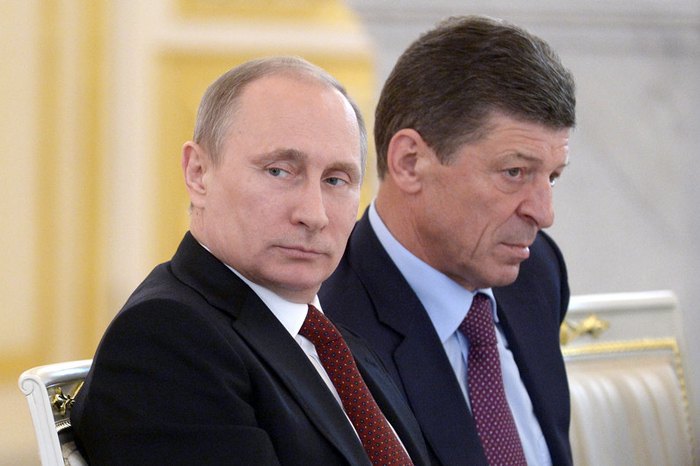
It is not clear yet what position Vladislav Surkov will move to, what he will do and what degree of influence he will retain on the processes in the self-proclaimed Donetsk and Luhansk people’s republics, but the significance of replacing Surkov with Kozak is obvious.
As you know, Kozak’s Kyiv counterpart is Andriy Yermak , who has been negotiating with Moscow since the first day of Zelenskyy’s presidency. Who did not allow - and this is his achievement - Medvedchuk's return to his usual track and, most importantly, he managed to outplay Surkov at a summit in Paris, which was one of the reasons for his resignation.
The key question is: can these developments be considered the prerequisites for a more intensive dialogue on resolving the conflict while the recent escalation in Zolote-1 - as Surkov’s “farewell greetings”?
There is no reason to expect the leadership of the Russian Federation to be honest and decent, or to keep a promise - our experience is too sad. However, it is foolish not to admit that the situation has changed. And the global situation for Moscow is not the most favourable, and the situation inside Russia itself is far from the euphoria of the “Crimea is ours” time. Because of this Putin is not interested in a large-scale (this is a key word here) escalation in Donbas. And he uses every means, as well as the help of European friends of the Kremlin, to try and weaken the sanction stranglehold.
Does this mean he is ready to end the war? No, it rather means that he wants to squeeze the most out of the “process” for himself: to lift sanctions, make sure that elections are held in Donbas, charge Ukraine for the “social” costs on and the restoration of Donbas.
However, even in such conditions, Ukraine can reap its benefits: it can finally secure the release of all Ukrainians who are in captivity or in Russian prisons, and minimize shelling on the front line. Perhaps, get Western partners’ funding for that very restoration of Donbas. All of this is a subject for negotiation whose failure/success for Kyiv directly depends on the skills of the one who holds them. And the methods he uses.
Man of war vs man of peace
The change of the presidential office head last week gave rise to a discussion in the media: what is the difference between the two Andriys, what it changes for the president and for the country. This is certainly important but there is a more important than another.
This has not been discussed before.
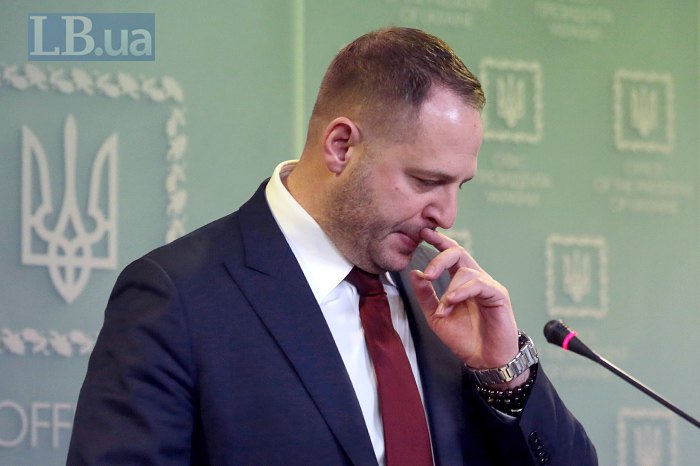
The reshuffle allowed us to see the real Zelenskyy. Not a fragmentary image that was partially visible through a stencil sparingly cut by Andriy Bohdan, but his true essence. When a figure can be judged in the broad light, not by the patches of shadow cast by it.
Just think about it: if the right hand constantly creates conflicts, spoils relations with everyone, behaves deliberately defiantly while flouting the basic (not to mention politically acceptable) standards of decency, what can one think of the leader?
The answer is unequivocal: that it suits the leader, for once. Two, he encourages this. Three, he is like this himself and would like to behave in a similar way, but his position does not allow him. Four, watching the antics of his consiglieri, he enjoys and almost asserts himself.
It turned out that this is not so. That Zelenskyy chose to be constructive, he chose the path of agreements, and not war on all fronts, thus moving away from the image that Bohdan created for him. That the media are no longer enemies, and that what civil society thinks is important. Bohdan’s resignation is not the only proof (one of LB.ua sources gave the most accurate description of what was happening in mid-January: “Deep inside he (Zelenskyy - SK) fired him a long time ago. This just needs to be formalized”). But there was also a chain of related / subsequent events.
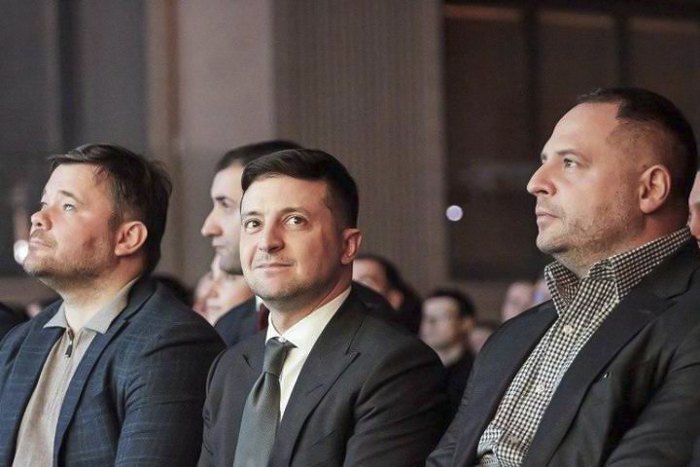
Two Andriys
Let us see if it is true by running a detailed comparison of the modi operandi of the two Andriys.
Bohdan’s power rested on the “three pillars” and one prerogative.
His “whales” are personal ambitions, establishing control over big cities and Project Land.
His prerogative is a possibility to exert virtually monopolistic influence on the judiciary, using its capabilities - when necessary - in the interests of the current government.
Let us dig deeper.
Personal ambitions. Bogdan did not hesitate to demonstrate that “power is me,” at first even allowing himself to publicly interrupt and correct the president. In addition to this demonstration - and this is the main thing - he tried to literally take over control over everything and everyone - from the “Servants of the People” faction in parliament to the Prosecutor-General’s Office and the State Investigation Bureau.
The rest of the team, and apparently Volodymyr Zelenskyy were really sensitive to this. No wonder that Bohdan’s exorbitant ambitions were regularly mocked by Kvartal 95, which made Zelenskyy vulnerable.
Establishing control over the budgets of cities with over one million residents and other “gold mines”. Kyiv was intended to be a showcase. Indeed, if you can topple Klitschko, then what is there to say about Trukhanov, Kernes and smaller-caliber figures in the focus of law enforcers’ attention. Remember that it was Andriy Bohdan who was the frontman of the campaign to remove the capital's mayor. From letters to the Cabinet of Ministers to visits to TV channels, he acted in his usual “cocky” manner.
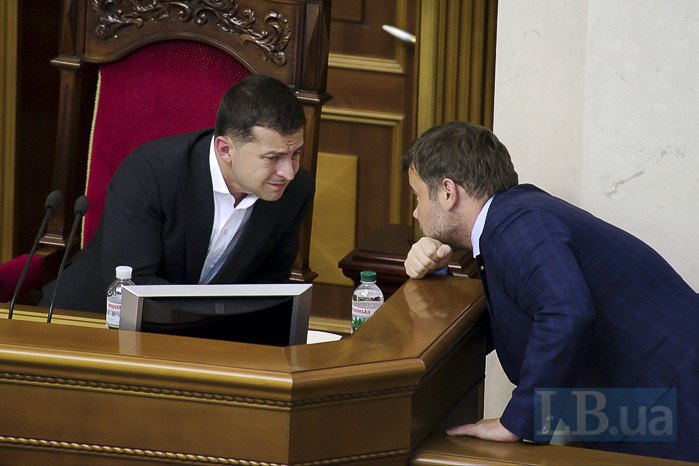
But the reset of power in large cities - where means local budgets and resources in addition to voters - also fell through. Vitaliy Klitschko’s potential successor (as head of the Kyiv city state administration) was already accepting congratulations when Andriy Yermak intervened. He persuaded the president that extra conflicts are really unnecessary. Once Zelenskyy realized that was true, the conflict was instantly resolved.
This, by the way, is the main difference between the two Andriys: whereas Bohdan’s motto could well be the words "we do not need anyone", Yermak's credo is "we need everyone". It would seem that both are lawyers by education and field of activity, therefore it would be logical to assume they share views, approaches, and methods of work. But one’s head is full of small-town intrigues, which often seemed dictated by the logic of a “fixer”. Another one “outplayed” all of this by the scale, thanks to which the president was not engaged in quarreling with small provincial officials, but built communication with Macron and Merkel. And I must say, Zelenskyy is quite comfortable on this scale.
The third whale is Project Land. Andriy Bohdan knows and understands more about this than most in the current government. An infrastructure was built specifically for this project: the respective parliamentary committee, which was headed by Mykola Solskyy, Bohdan’s long-time partner in agricultural business, the Justice Ministry, whose registers were closely monitored by his Saint-Tropez friends... It could have turned out to be a jackpot of a lifetime.
But the "hardcore" version of land reform failed right from the start when it became clear that there were no votes for it even within the Servants of the People party. When this happened, one of the senior LB.ua sources remarked: “He (Bohdan - SK) is not interested in power anymore.”
And the last: with Bohdan gone, Ukraine for the first time - for a long time - is left virtually without any “handler” of the judicial and legal system on behalf of Bankova. An absolute plus. A unique window of opportunity of unpredictable duration.
What to expect?
The “new broom” always sweeps “in a new way”, and each manager has his own methods of management, this makes sense. But the key trends of the near future are obvious now.
HR policy update. How did interviews go in the Cabinet of Ministers? Accompanied by obscene comments about the prime minister from Andriy Bohdan (the more people heard them, the better). And how did tete-a-tete meetings with the head of state go? Also in the presence of Bohdan who was afraid not only to move away from Zelenskyy but even just to let him out of sight.
From now on, there are no barriers. And the point is not that future members of Honcharuk’s cabinet are being interviewed by Zelenskyy as well as Yermak (even before the promotion) and Shefir, but that now no-one is usurping the “entry point” to the president, or cutting off the channels for receiving information – to people, ideas, projects.
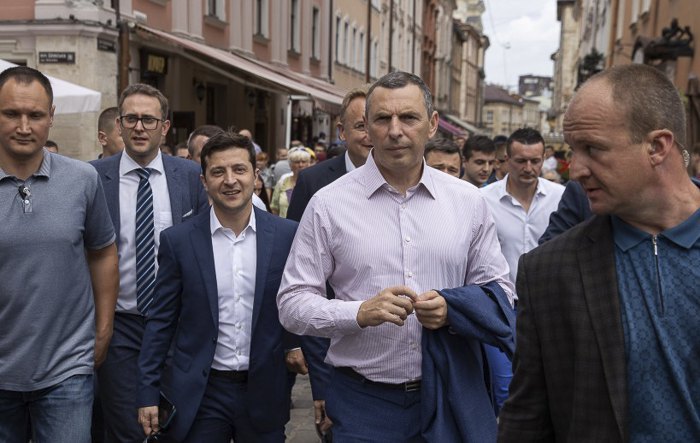
Changing the philosophy of relations with the media and civil society. No comments here, everything is clear here as is. In the absence of the major irritant, they can actually begin to build them from scratch. Especially if the personnel responsible for information support at the presidential office, proponents of Telegram wars, follow the conflict generator.
Resetting communications with parliament. De facto, all this time Andriy Bohdan acted - on behalf of the presidential office - as the main communicator with parliament. His main argument was the figure of President Zelenskyy and his rating. His method does not require an individual approach to each MP (how tiring and energy-intensive it could be), especially from a single-seat constituency. And he was wrong. Experience shows that MPs are sensitive and very suspicious people; you need to talk with them, listen carefully to everything they say (sometimes even this is enough), give praise (I’m not joking), and, if possible, help and promote them. Only then will they reciprocate. The tactics of "turbo mode" is good, but short-lived.
The triumph of "unofficial" diplomacy. Meetings and negotiations of the Ukrainian side in the framework of Davos, Munich, preparations for a visit to the United States, finally marked the onset of a new era of domestic diplomacy. Actually, this is a global trend. All over the world, old-school, “classical” diplomacy is cutting its functionality to the technical support of processes. Often, important agreements are reached not during official negotiations, but at informal venues - from cultural centres to think thanks. And effective results are reached not by ambassadors, but by freelance advisers, assistants and attorneys.
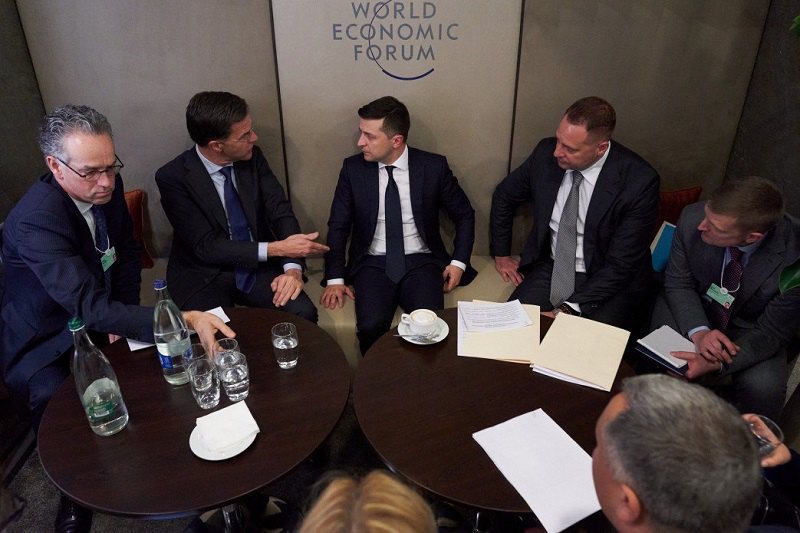
Whereas previously the ties were built exclusively between institutions, now the people representing them also matter. And the institutions should not necessarily be large and state-owned.
***
“We want to break this system, we want peace for Ukraine, and for everyone to live according to the rules,” said Serhiy Shefir, first aide to the president, in an interview with LB.ua last July. Many team members added then: all this needs to be done quickly. But they failed to dismantle the system in turbo mode. And it couldn’t. It takes more than one day, one month or even a year to build peace and ensure that everyone lives by the rules.
And that means that the Zelenskyy team inevitably has to abandon the methods of revolutionary expediency and search for quick solutions in favour of the era of long-term planning and routine work on the country's evolution. Which would require everyone, I repeat.
